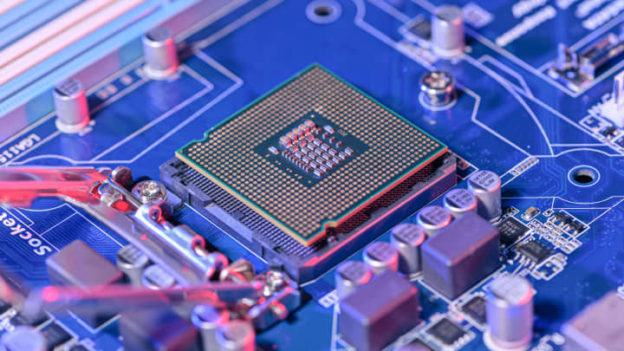Talks are on between Taiwan and India on an agreement that might bring chip manufacturing to South Asia with tariff reductions on semiconductor components by the end of the year. People in the know of the talks informed news portals that this move could spark a new round of tensions with China.
According to this source, New Delhi and Taipei officials have been meeting in recent weeks to discuss an agreement to build an estimated $7.5 billion chip plant in India for the production of everything from 5G phones to electric cars.
In addition to providing financial support of 50% of capital expenditure as well as tax breaks and other incentives, India is currently studying locations that have adequate land, water and manpower, according to sources in the industry. Taiwan officials want to speed up progress on a bilateral investment agreement that will allow tariffs to be reduced on dozens of products used for semiconductor production, a precursor to a broader trade agreement also being discussed.
For confidentiality reasons, none of the people listed requested to be named. The Office of Trade Negotiations of Taiwan’s cabinet declined to comment, and an Indian trade minister’s spokesman did not respond immediately to a text message.
Trade talks occurred at a time when democracies across the globe are bolstering economic and military ties to stand up to an increasingly assertive China. Taiwan has long sought a trade relationship with India, but New Delhi had been reluctant to anger Beijing, which claims Taiwan as its territory.
Recent weeks have seen collaboration intensify between US President Joe Biden and other leaders of democracy in the region, seeking to boost chips and supply chains within democracies. As part of the Quad meeting, a group aimed at countering China’s influence, he met Indian Prime Minister Narendra Modi as well as leaders of Australia and Japan on Friday.
After violent clashes on the Indian-Chinese border in which 20 Indian and four Chinese soldiers were killed in 2020, India has taken a tougher line against China. Taiwan and India are currently preparing to negotiate an investment agreement to be able to show some progress with the investment deal. However, officials in Taipei would like to revise the agreement so as to show some progress.
Taiwan wants to stiffen its diplomatic presence around the globe in order to push back against Chinese pressure as it seeks to become more self-reliant. India has also sought high-tech investments in an effort to become more self-sufficient in chips. Beijing has pledged to do everything possible to unify the island democracy with the mainland.
Chip shortages have delayed the much-anticipated launch of a smartphone by billionaire Mukesh Ambani’s Reliance Industries that has been co-engineered with Google. Currently India imports almost all semiconductors to meet demand estimated to reach around $100 billion by 2025 from about $24 billion now.
People familiar with the matter said Taiwan has welcomed cooperation between the two countries on semiconductors, though it is still evaluating the proposal given the lack of ecosystem for setting up a chip fabrication plant in India. It was mentioned that Taiwan has raised concerns about water and electricity supply, and that India may find it more feasible to start the chip design industry first, before moving onto building fabs.
https://timesofindia.indiatimes.com/business/india-business/india-accelerates-talks-with-taiwan-on-chip-plant-trade-deal/articleshow/86555096.cms#:~:text=Officials%20in%20New%20Delhi%20and,electric%20cars%2C%20the%20people%20said.





